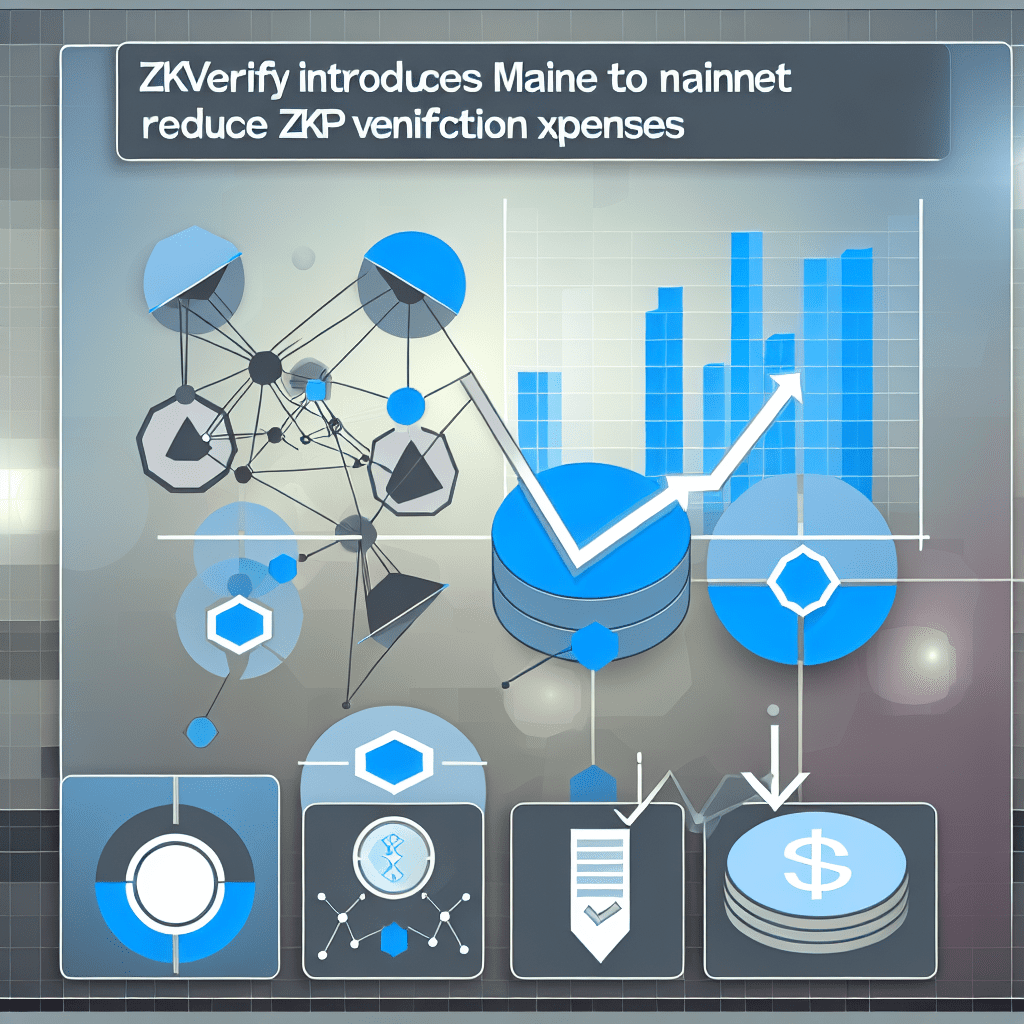Horizen Labs is launching its dedicated layer-1 blockchain for private data verification, incorporating zero-knowledge cryptography.
On Tuesday, ZkVerify unveiled its mainnet, specifically built for zero-knowledge proof (ZK-proof) verification.
“ZkVerify aims to eliminate the economic and technical hurdles that hinder ZK adoption,” stated Horizen Labs CEO and zkVerify founder Rob Viglione in an interview with Cointelegraph.
“Even though verification is often regarded as the ‘cheapest’ segment of the ZK value chain, it remains too costly and inefficient for real-world scalability,” Viglione added.
What is ZKP verification?
ZKP verification is a cryptographic technique allowing one party to prove a statement without revealing the underlying information. A common example involves confirming age eligibility for a service without needing to disclose an entire ID or personal details.
With ZKP volume projected at approximately $100 million and 4.4 billion proofs by 2025, the ZK proving market is expected to hit $1.5 billion by 2030, according to data from top industry platforms such as Chorus, Aligned, and Horizen Labs.
“Currently, many chains and applications face slowdowns or increased costs because verifying proofs on Ethereum or other chains can be significantly pricier,” Viglione mentioned.
According to zkVerify, ZKP verification on networks like Ethereum may cost up to $60 per proof during peak congestion, consuming as much as 300,000 gas units. zkVerify promises at least a 90% cost reduction compared to direct verification on L1s.
“Heavy math instead of original app or chain”
To minimize verification expenses, zkVerify introduces a dedicated verification layer, which segregates proof verification from settlement on L1s.
“zkVerify performs the heavy computations for the ZK-proof rather than the original app or chain,” Viglione shared with Cointelegraph, adding:
“The original chain sends proof and inputs, routes them to the appropriate verifier, validates them, and records a pass or fail result. Other applications or chains can then read that outcome instead of recalculating, thus offloading the computational burden to zkVerify and reducing both time and cost.”
Decentralized ID, gaming, DeFi lending among use cases
Viglione noted various practical applications for zkVerify, including decentralized IDs, verified trading predictions, decentralized finance lending, gaming, and more.
“The simplest way to interact with zkVerify is through our relayer interface, which is user-friendly like an API and continually expanding in capabilities,” he remarked, adding that the blockchain operates seamlessly in the background, eliminating the need for users to think about its mechanics.
Related: Vitalik critiques EU’s Chat Control: ‘Everyone deserves privacy and security’
He also emphasized zkVerify’s ability to validate various proof types with its modular design and multichain flexibility, allowing teams to verify once and attest across Ethereum, Base, Arbitrum, Optimism, and other chains without being locked in.
ZkVerify’s mainnet launch follows the Ethereum Foundation’s recent announcement to integrate its ZK Ethereum Virtual Machine (zkEVM) into its L1 blockchain within the upcoming year.
This integration is expected to significantly enhance zkEVM’s block execution, enabling validators to verify multiple proofs from a range of zkVMs instead of redoing block transactions.
Magazine: Can privacy survive in US crypto policy post-Roman Storm’s conviction?

